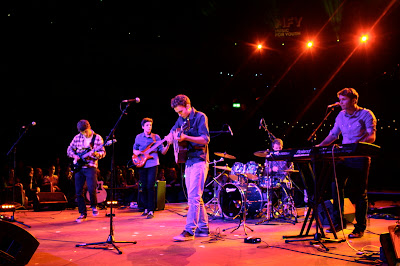Christina Carter is new to me, and the first cd of hers that I have listened to a couple of times, Texas Modern Exorcism, has a history I haven’t been able to trace definitively, but I think it started as a cassette-only release in 2008, had another release in 2011, and has reappeared again quite recently. My interest was sparked by this most recent emergence and in reading about her work and this album in particular at Volcanic Tongue, here, and from where I ordered two of her cds.
The six tracks on this album are idiosyncratic songscapes
that seem to take shape as improvisation but have to actually be complex
compositions. Opener Painting is
driven by an unusual infusion of harmonica over simple piano chords, though
these chords are overlaid with dancing piano notes at about 12 minutes into and
until the end of the song’s near 20 minutes total. 7 minutes of the song are
filled by Carter’s overdubbed vocals, sung poetic statements that echo one
another and also merge in harmony. Second Dance
is immediately into the vocal, long haunting notes again chasing one another as
an echo of sound as well as the words, chant-like at times. Third Film is spoken poetry over electric
guitar - as society expects, to contain
love... my longing, my longing – and the poetic narrative obviously
advances beyond these opening repeated lines with Carter again using overdubs
to echo, reinforce, harmonise and mesmerise. The guitar lead interjects with
the words and this leads into a cascade of repeated and echoed lines as
relentless imperatives, return to me.
Fifth Music is probably the most
complex and it continues the pattern of spoken and sung poetic lines that recur
like ricochet in the drive onwards through the song, here pushed to some of the
busiest harmonies. Final track Drama
at 13 minutes seems to reassess and include all that has gone before, not
lyrically but musically, and the harmonica returns as do the complex
criss-crossings of vocal lines.
It all requires a different kind of listening to the norm,
if that makes sense. These songs need both aural patience and desire: there are
moments of slow musical development with which you need to commit; the poetry
is impressionistic at times and you have to accept suggestion and thought
rather than definitive meaning, not that I think this is particularly hard:
music should at times be about thinking over declaratives. These are not pop
songs making simple statements.
I bought both this and Imaginee
for their creative content, very much on the descriptions on the Volcanic
Tongue site. Their limited edition status, hand-painted covers and, as with Imaginee, an original painting from
Christina, all suggest an artistic endeavour/impulse that is genuinely
interesting. I still have this second cd to listen to and I will review later. Where
so much music can be formulaic [though I don’t always feel this is a bad thing,
and have argued so] it is good to discover and support someone who perseveres
with an individual creative drive.



















